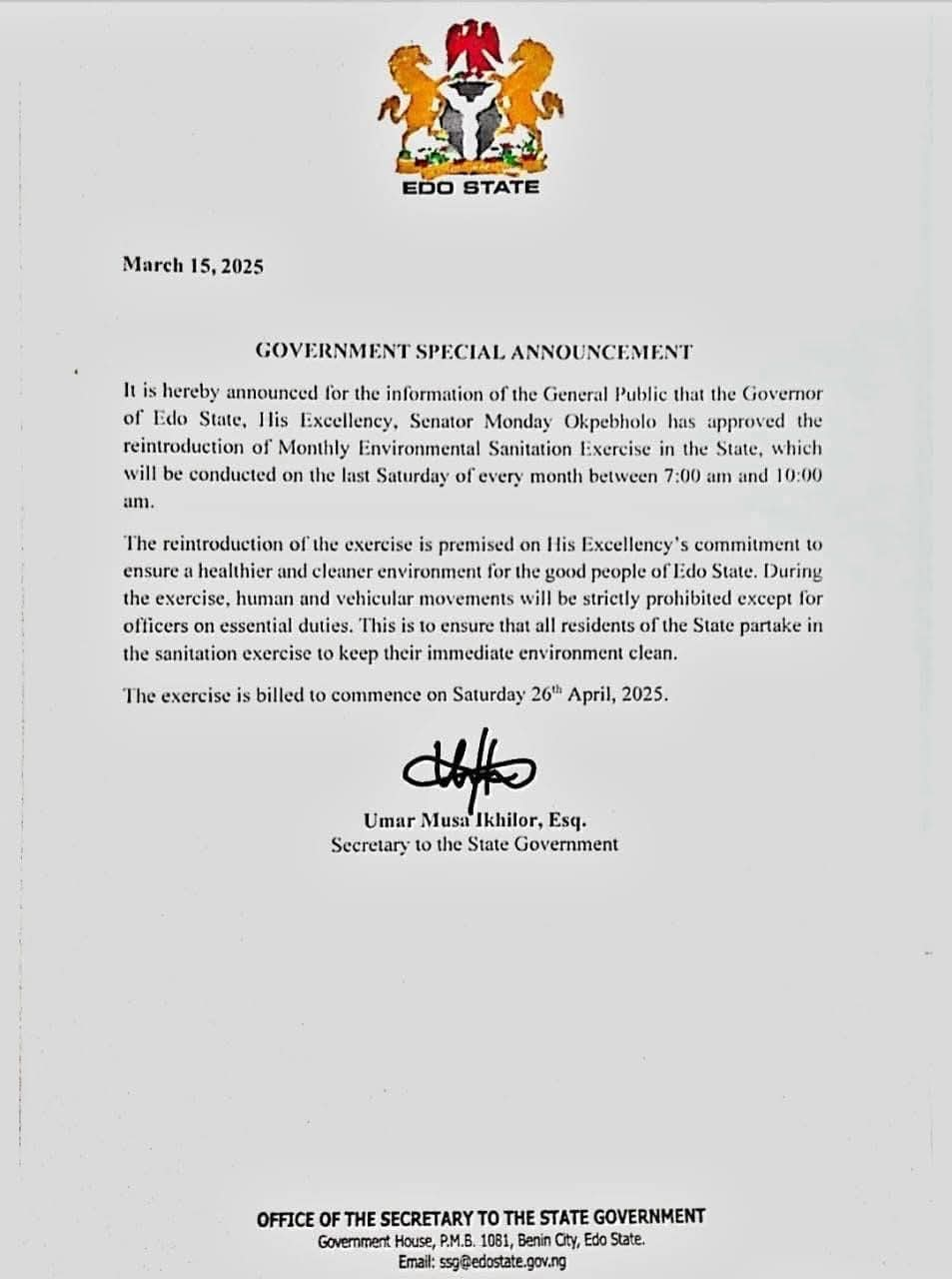In March 2015, Justice Mohammed Idris of the Federal High Court, Lagos, delivered a landmark judgment that redefined the limits of executive power in Nigeria. In Suit No: FHC/L/CS/27/2015 – Emmanuel Okoro & Ors. v. Lagos State Government & Ors, the court ruled that state governments do not have the constitutional authority to restrict the movement of citizens solely for environmental sanitation purposes. The decision was anchored on Section 41(1) of the 1999 Constitution (as amended), which guarantees every Nigerian the right to move freely within the country.
Despite this authoritative pronouncement, the recent reintroduction of movement restrictions during monthly environmental sanitation exercises in Edo State has raised significant concerns about governance, legality, and respect for fundamental human rights.
The decision of the Edo State Government to restrict citizens’ movement on sanitation days stands on shaky legal ground, not only because of the Lagos Federal High Court ruling, but also due to a specific judicial decision within Edo State itself.
In the case of *Igbinedion v. Edo State House of Assembly & Others (2018), the Edo State High Court, presided over by Chief Judge Justice E. F. Ikponmwen, declared the Edo State Sanitation and Pollution Management Law No. 5 of 2010 unconstitutional. The court ruled that the establishment and operation of the Edo State Waste Management Board were ultra vires (beyond the powers of the state government), null, and void. Furthermore, the court issued a perpetual injunction restraining the government from implementing the invalid law.
This case further emphasizes that any effort to enforce movement restrictions or impose penalties in the name of environmental sanitation must be backed by valid and constitutional legal instruments. Arbitrary implementation not only violates the rule of law but also subjects the citizens to unlawful government overreach.
The Governor Monday Okpebholo-led State Government’s recent decision to impose movement restrictions despite these judicial precedents raises red flags about the erosion of constitutional democracy. When state governments act in clear contravention of judicial rulings, it sets a dangerous precedent of executive lawlessness and weakens the foundation of governance based on the rule of law.
The goal of achieving a clean and sustainable environment is unquestionably important. However, this noble intention must be pursued within the framework of legality and respect for citizens’ rights. Restricting movement, deploying security agents, and arresting citizens under the pretext of sanitation are not only disproportionate, they are illegal.
Instead, the government should focus on public enlightenment campaigns, community-based initiatives, and provision of waste disposal infrastructure, encouraging voluntary compliance through education rather than coercion.
While the environmental challenges facing Edo State are real and must be addressed, the means of doing so must be legal, transparent, and participatory. Both the 2015 Federal High Court judgment and the 2018 Edo State High Court ruling in Igbinedion v. Edo State House of Assembly provide a solid legal basis for declaring movement restrictions during sanitation exercises unconstitutional.
The Edo State Government should immediately halt any unlawful restriction of movement and instead prioritize citizen education and infrastructure development. Civil society organizations, legal practitioners, and the judiciary must remain vigilant in ensuring that environmental policies do not trample on constitutional freedoms.
In a constitutional democracy, the rule of law must remain supreme, and no policy, no matter how well-intentioned, should be allowed to override the rights of the people.







Leave a Reply